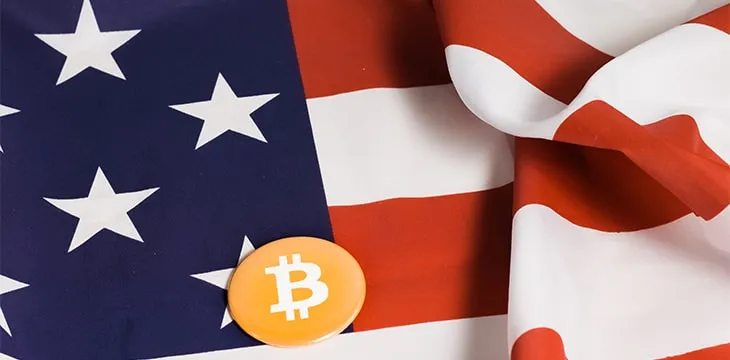|
Getting your Trinity Audio player ready...
|
This week the U.S. government seized over 94,000 BTC tokens worth $3.6 billion. It was the largest seizure in the history of the digital currency industry. Many are now wondering, what will Uncle Sam do with the loot? As more people begin to accept that a prolonged bear market is likely upon us, the fear that the U.S. government could dump 94,000 BTC on the market has more than a few people worried.
However, if you read our previous article on what the U.S. government does with seized digital assets, you’ll know that there’s no need to worry about this in the immediate term.
How did the U.S. government seize the stolen BTC coins?
First, for anyone who doesn’t know yet, let’s quickly recap how the U.S. government came to be in possession of these coins.
- Earlier this week, a Manhattan-based couple was arrested and charged with conspiracy to launder 119,754 BTC worth $4.5 billion. It’s unclear if they were the original hackers.
- The funds are linked to the infamous 2016 Bitfinex hack. The pair, Ilya Lichtenstein and Heather Morgan, moved funds through various exchange accounts and darknet markets using false identities.
- The funds then ended up in the couple’s bank accounts, and the original stolen BTC was traced to the wallet of Ilya Lichtenstein.
- Authorities tracked the movement of the funds through blockchain records. Since the couple had already successfully laundered 25,000 BTC, authorities were able to seize the remaining 94,000 BTC tokens.
- How did the authorities seize the coins? They got a court order to access Lichtenstein’s online files. This file contained the private keys to the illicit BTC stash.
- In a statement, Deputy AG Lisa Monaco said that attempting to maintain digital anonymity was “futile” and that the arrests prove that digital currencies are not a safe haven for criminals.
If only they had listened to Bitcoin‘s inventor, they’d have known they were leaving a traceable, time-stamped digital trail and that Bitcoin is not an anonymous digital currency outside of the reach of the law. Sadly, this difference between privacy and anonymity is a lesson many will have to continue to learn the hard way.
In an interesting twist, Bitfinex may have to attempt to prove ownership of the coins legally to retrieve them. This is speculation at this stage, but it’s difficult to imagine how they would get the coins back any other way. It will be interesting to see how the BTC maxis react if Bitfinex resorts to legal action through the courts to try and recover the stolen coins. Given the sheer amount involved, it’s unlikely the company will let it slide.
What will Uncle Sam do with the BTC coins now?
We’ve covered this before in another article in more detail, but in short, they could either be tied up while Bitfinex tries to legally reclaim the coins, or they could be sent to the U.S. Marshalls Office to be auctioned off. To date, they’ve auctioned off approximately 185,000 BTC. After that, the funds are usually sent to the Treasury Executive Office for Asset Forfeiture or the DOJ Asset Forfeiture Fund.
In any case, that’s unlikely to happen right away. There’s still the question of whether Bitfinex can lay claim to the stolen property and whether or not that will involve a lengthy legal process to reclaim them. While BTC bulls have other things to worry about, namely that new regulations could bring Bitfinex sister company Tether down and that there’s virtually no chance of a BTC spot ETF becoming a reality while widescale market manipulation and fraud exist. They can probably set aside the worry that Uncle Sam might market dump 94,000 coins, at least for the next few months.
Plot twist: Heather Morgan talked to BitGo about cybersecurity
🚨 Interesting: Heather Reyhan, arrested today for money laundering tied with #Bitfinex hack, here is talking to the Chief Compliance Officer of BitGo about cyber security. Why is this interesting? #BitGo was the wallet solution provider to #Bitfinex when the hack happened. 🤔 https://t.co/iEjRbXxsTA
— WallStreetPro (@wallstreetpro) February 8, 2022
As if this isn’t all strange enough as it is, it turns out that Heather Morgan talked to BitGo’s Chief Compliance Officer about cyber security not long ago.
Why does this matter? Because BitGo was the wallet solution provider when the hack occurred. Here we have one of the two arrested for laundering the vast trove of stolen BTC tokens talking to the wallet provider at the time about cybersecurity.
As you can see in the linked tweet, Bitfinex CTO Paolo Ardoino picked up on the information right away. This will surely be of interest to everyone involved as they try to figure out exactly what happened.
Whatever ends up happening to the coins and whether or not the two who stand accused of laundering the funds were the original hackers, it’s becoming more apparent by the day that blockchain-based digital currencies like Bitcoin are wholly unsuitable for criminals. Satoshi Nakamoto warned early Bitcoiners of this when they supported Ross Ulbricht in setting up the Silk Road, but still, myths of Bitcoin’s anonymous nature persist.
As a wise man once asked…when will they learn?
Follow CoinGeek’s Crypto Crime Cartel series, which delves into the stream of groups—a from BitMEX to Binance, Bitcoin.com, Blockstream, ShapeShift, Coinbase, Ripple, Ethereum,
FTX and Tether—who have co-opted the digital asset revolution and turned the industry into a minefield for naïve (and even experienced) players in the market.

 09-18-2025
09-18-2025 





